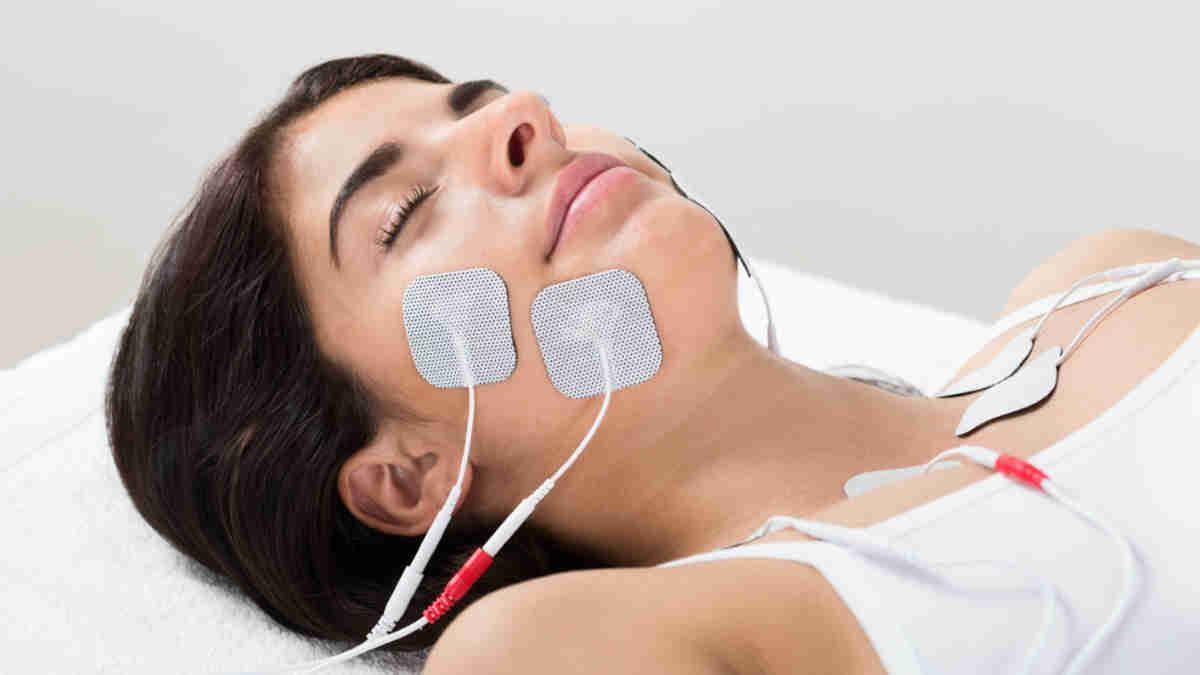Diagnosing mental disorder through sleep: How TrivarX could capture this huge research market

TrivarX's AI technology diagnoses mental health via sleep monitoring. Picture Getty
- One in eight people in the world have some form of mental disorder
- TrivarX’s AI technology diagnoses mental health via sleep monitoring
- Stockhead reached out to TrivarX’s COO, Kai Sun
Mental health has always been a big global issue, but Covid-19 has triggered a major increase in its awareness worldwide.
According to the World Health Organisation, around 1 billion people globally (that’s about 1 in every 8 humans) are living with some sort of mental disorder, with anxiety and depression the most common.
Government budgets aimed at tackling the issue have surged in recent years. In Australia for example, the Federal Budget has committed to provide $547 million over five years from 2021 to prioritising mental health measures.
This sudden focus has made mental health-related stocks one of the most promising investments in recent years.
On the ASX, TrivarX (ASX:TRI) – a sub-$10m market capped, Minneapolis-based company – is one that could well be worth watching in this space.
TrivarX is commercialising its AI-driven screening and diagnostic tools – the Stager sleep software and the MEB-001 device – to assist in the screening and long-term monitoring of mental illness and mood disorders.
“Researchers have always looked at HRV (heart rate variability) in relation to people with with mental illnesses,” Kai Sun, chief operating officer of TrivarX, explained to Stockhead.
“Obviously, the heart rate spikes when people are going through anxiety or depression, but there are too many external factors there during daytime.
“So what TrivarX is pioneering is using sleep as the window into mental health. And we’re the first to essentially conduct a clinical trial through a nighttime sleep study in a lab.”
TrivarX says its novel products are aimed at sleep research organisations in the US, targeting the US$15 billion sleep medicine market.
How TrivarX’s AI technology works
Heart rate variability or HRV is a sensitive measure of sleep deprivation. People with high sleep onset latency (the time it takes one to fall asleep) usually have a higher heart rate, and lower HRV.
Chronic insomnia and sleep deprivation can also affect HRV, and people with depression often demonstrate a lower HRV reading.
TrivarX’s Stager software helps researchers calculate standard measures of HRV during the four stages of sleep. The platform automatically stages sleep and characterises critical features of sleep architecture.
“Sleep has been the missing element in to being able to objectively describe, diagnose and analyse whether a subject is going through depression,” says Sun.
“There are many reasons for it, but essentially, during that time of sleep, the body is at rest, and thus we can analyse how the heart rate and HRV.
“We can also analyse the different signals within a person, such as how biomarkers in the brain and heart et cetera change during sleep.”
Sun explained that TrivarX’s AI-powered software is used by the clinical team to essentially analyse epochs (30 second intervals during the patient’s sleep) to find unique changes in these biomarkers. The results will then determine if the person is in fact experiencing a depressive episode.
At the moment, the standard process used in the market involves manual sleep scoring by humans, which takes two or more hours, while Stager sleep scoring only takes 30 minutes.
“If you imagine uploading a standard EDF [European Data Format] file which is taken from all sleep stages software.
“You run it through our algorithm or our software on the computer for each stage of sleep, and it will spit out the report and provides the HRV right now,” explained Sun.
“That process is currently done is by humans ie; human sleep scores raters. They would take that EDF file, analyse, and record each of those different stages themselves.
“We’re obviously able to do it a lot quicker based off AI and machine learning.
“Ours is a completely unique research tool on the market, and no other tools can provide HRV by sleep stage.”
Sun explained that the company has collected and tested data from one million epochs via more than 1,000 polysomnography studies to build the AI algorithm.
“Our technology is basically supervised machine learning,” said Sun.
“We’ve trained the AI to look at specific things within those epochs and those specific hypotheses that the team has come up with.
“The algorithm is then able to to understand what the changes between each of those sleep stages in that person’s biomarkers mean.”
FDA catalysts looming
TrivarX’s MEB-001 device meanwhile screens sleep study patients for mood disorders. It uses biometric data, EEG (brain), ECG (heart Rate) and HRV recordings collected during in-clinic sleep studies.
The device is in clinical development with an ongoing Phase 2 clinical trial called SAMDE, with plans for market authorisation via the US FDA.
The clinical trial is using in-depth analysis from the successful Phase 1 results, aiming to provide screening of a current Major Depressive Episode (cMDE).
More than 200 subjects out of 400 have been enrolled for the study, which is on track for completion over the coming months. Latest results have been encouraging, with MEB-001 showing 86% sensitivity and 75% specificity.
Data from this study will also be used in TrivarX’s in-person, pre-submission meeting with the US FDA, which is scheduled to occur in the coming weeks.
“We’ve got a clear pathway on what we need to do in terms of getting the FDA clearance,” said Sun.
“We’ll have our second FDA Q-Sub meeting in Q3 this year. And based off the information from that Q-Sub, we’ll move into a clinical validation stage by Q4 this year.
“That clinical validation stage will be based off the feedback we get from the FDA in order to validate the performance of the algorithm, and then we’ll look to submit our formal clearance as a medical device early next year.”
Sun added that while the company is targeting depression and major depressive episode right now, those are only a small subset of the overall mental illnesses market.
“You’ve got PTSD, you got bipolar, you got traumatic brain injury. Those are the different indications that could allow us to potentially access by providing something of value to researchers.”
“So there’s there’s a much bigger fish to fry that we’re expanding into,” said Sun.
Other ASX stocks in the brain space
HitIQ’s products provide end-to-end concussion ecosystem, supporting the identification, monitoring and management of sport related brain injury.
Called CSX, the platform is a cognitive assessment aid that helps track individuals’ brain health over time, screening for sudden changes after a potential brain injury.
HITIQ’s Nexus head impact sensor technology and mouthguard meanwhile allow for the capture and detailed analysis of head impact exposure in contact sports.
Its products will be used in the AFL and AFLW competitions for season 2024.
They are also being used in the English Premier League (EPL), and the National Rugby League (NRL), along with numerous other teams in a variety of sporting codes.
Actinogen is developing innovative treatments for Alzheimer’s disease and the cognitive decline associated with neurodegenerative diseases and metabolic diseases, like Type 2 diabetes.
The company focusses on the development of Xanamem, a novel treatment for Alzheimer’s disease.
Actinogen recently reported positive Xanamem human PET study, published in the Journal of Alzheimer’s Disease.
The study confirmed that high levels of Xanamem that target occupancy in the brain are safe and well tolerated.
Actinogen is currently undergoing clinical trials – XanaCIDD (Phase 2a, depression) and XanaMIA trials (Phase 2b, Alzheimer’s disease).
In 2023, Neuren became the first company in the world to offer an effective drug (DAYBUE) to treat Rett syndrome, a rare genetic neurological disorder that occurs almost exclusively in girls.
Infants seem healthy during their first six months, but over time, those with Rett syndrome rapidly lose coordination, speech and use of the hands.
Guidance for net sales of DAYBUE in Q4 2023 is expected to be US$80 million to $87.5 million.
The company has also announced a positive readout from its Phase 2 clinical trial of NNZ-2591 in Phelan-McDermid syndrome (PMS).
Share prices today:
Related Topics

UNLOCK INSIGHTS
Discover the untold stories of emerging ASX stocks.
Daily news and expert analysis, it's free to subscribe.
By proceeding, you confirm you understand that we handle personal information in accordance with our Privacy Policy.








